The average cost of Pacemaker Implantation Surgery in Herzliya approximately starts from USD 12500
Treatment cost
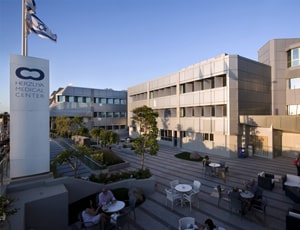
Apart from in-detail treatment procedures available, Herzliya Medical Center located in Herzliya, Israel has a wide variety of facilities available for International Patients. Some of the facilities which are provided by them are Accommodation, Airport Transfer, Interpreter, SIM, TV inside room. Also listed below are some of the most prominent infrastructural details:

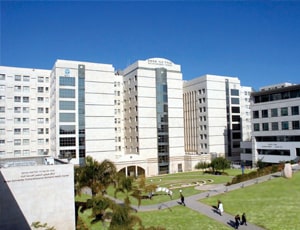
Rabin Medical Center located in Petah Tikva, Israel is accredited by JCI. Also listed below are some of the most prominent infrastructural details:
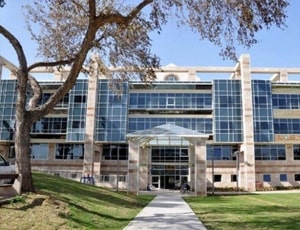
Kaplan Medical Centre located in Rehovot, Israel is accredited by JCI. Also listed below are some of the most prominent infrastructural details:
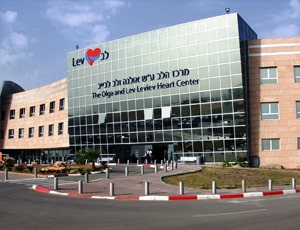
Sheba Medical Center located in Tel-Hashomer, Israel is accredited by JCI. Also listed below are some of the most prominent infrastructural details:
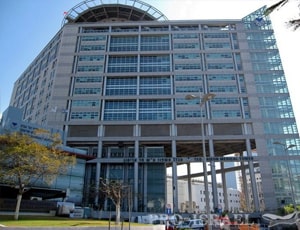
Tel Aviv Sourasky Medical Center -Ichilov Hospital located in Tel-Aviv, Israel is accredited by JCI. Also listed below are some of the most prominent infrastructural details:
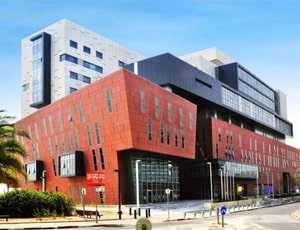
Assuta Hospital located in Tel-Aviv, Israel is accredited by JCI. Also listed below are some of the most prominent infrastructural details:
A pacemaker is a tiny, battery-operated device that ensures your heart beats at the right speed. Surgery is required to implant the pacemaker, usually beneath the skin near your collarbone. It's also known as a cardiac pacing device.
A pacemaker implant is a small device that weighs around 20 g to 50 g and is the size of a matchbox. It has a pulse generator with a battery, a tiny computer circuit, and a few wires called pacing leads. This system is attached to the heart and it emits signals through the wires. The pacing rate or the rate of electrical impulses can be adjusted as per the requirement of the body and be accordingly programmed. It can sense if a heartbeat is missed or if the heart is beating too slowly. Accordingly, it starts sending a steady signal to normalize the beating of the heart. If the beats are normal, then it simply does not send any signal.
Usually, a patient is kept under observation for more than a day after the pacemaker implantation surgery. It takes around six weeks for the patient to get used to the implanted device. Heavy work must be avoided initially. One should ensure that the concerned arm is not rendered immobile during this time to prevent a frozen shoulder. A physiotherapist can exactly show the movements that you need to perform to keep your arm healthy. Carry the duly filled pacemaker implant card for emergencies to avoid any unwanted situation.
Ask your healthcare adviser for the best multiple options and choose the one that meets your expectations
The average cost of Pacemaker Implantation Surgery in Herzliya starts from $12500. JCI are just some of the accreditations which top hospitals in Herzliya hold where a Pacemaker Implantation Surgery is conducted.
Different hospitals have different pricing policy when it comes to the cost of Pacemaker Implantation Surgery in Herzliya. The Pacemaker Implantation Surgery package cost usually includes all the expenses related to pre and post surgery expenses of the patient. The Pacemaker Implantation Surgery package in Herzliya includes the fees of the surgeon, hospitalization and anesthesia as well. Stay outside the package duration, port-operative complications and diagnosis of a new condition may further increase the Pacemaker Implantation Surgery cost in Herzliya.
Many hospitals in Herzliya perform Pacemaker Implantation Surgery. Some of the best hospitals for Pacemaker Implantation Surgery in Herzliyainclude the following:
After discharge from the hospital, the patient has to stay for another 11 days in the country for complete recovery. This is important to ensure that the surgery was successful. During this time, control and follow-up tests take place to check for medical fitness.
One of the topmost destinations for Pacemaker Implantation Surgery is Herzliya. It has a variety of accredited hospital, affordable cost of treatment and some of the best medical fraternity. However, there are other cities as mentioned below that are popular for Pacemaker Implantation Surgery as well:
Apart from the Pacemaker Implantation Surgery cost, the patient may have to pay for additional daily expenses such as for guest house after discharge and meals. The per day extra expenses in Herzliya per person are about 75 USD.
After the Pacemaker Implantation Surgery surgery takes place, the average duration of stay at the hospital is about 3 Days. During the recovery, the patient is carefully monitored and control tests are performed to see that everything is okay. If required, physiotherapy sessions are also planned during recovery in hospital.
There are around 1 Hospitals hospitals in Herzliya that offer Pacemaker Implantation Surgery to international patients. These hospitals have proper infrastructure for the treatment of patients who require Pacemaker Implantation Surgery. Such hospitals follow all legal protocols and guidelines as specified by the local medical affairs body when it comes to the treatment of international patients.
Some of the most sought after doctors for Pacemaker Implantation Surgery in Herzliya are: